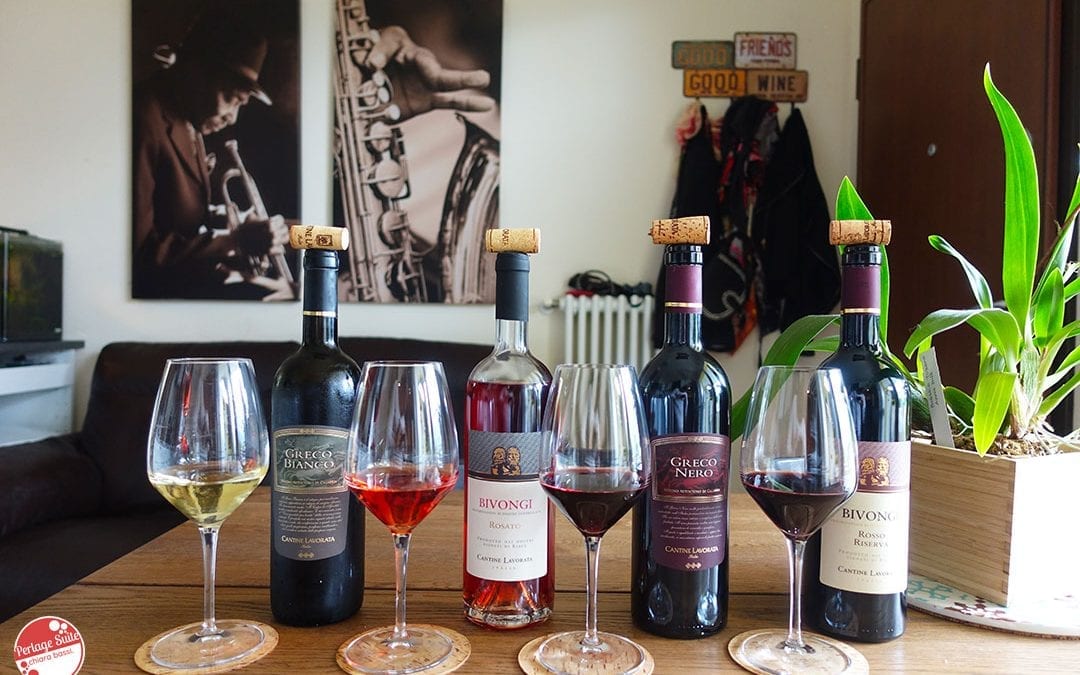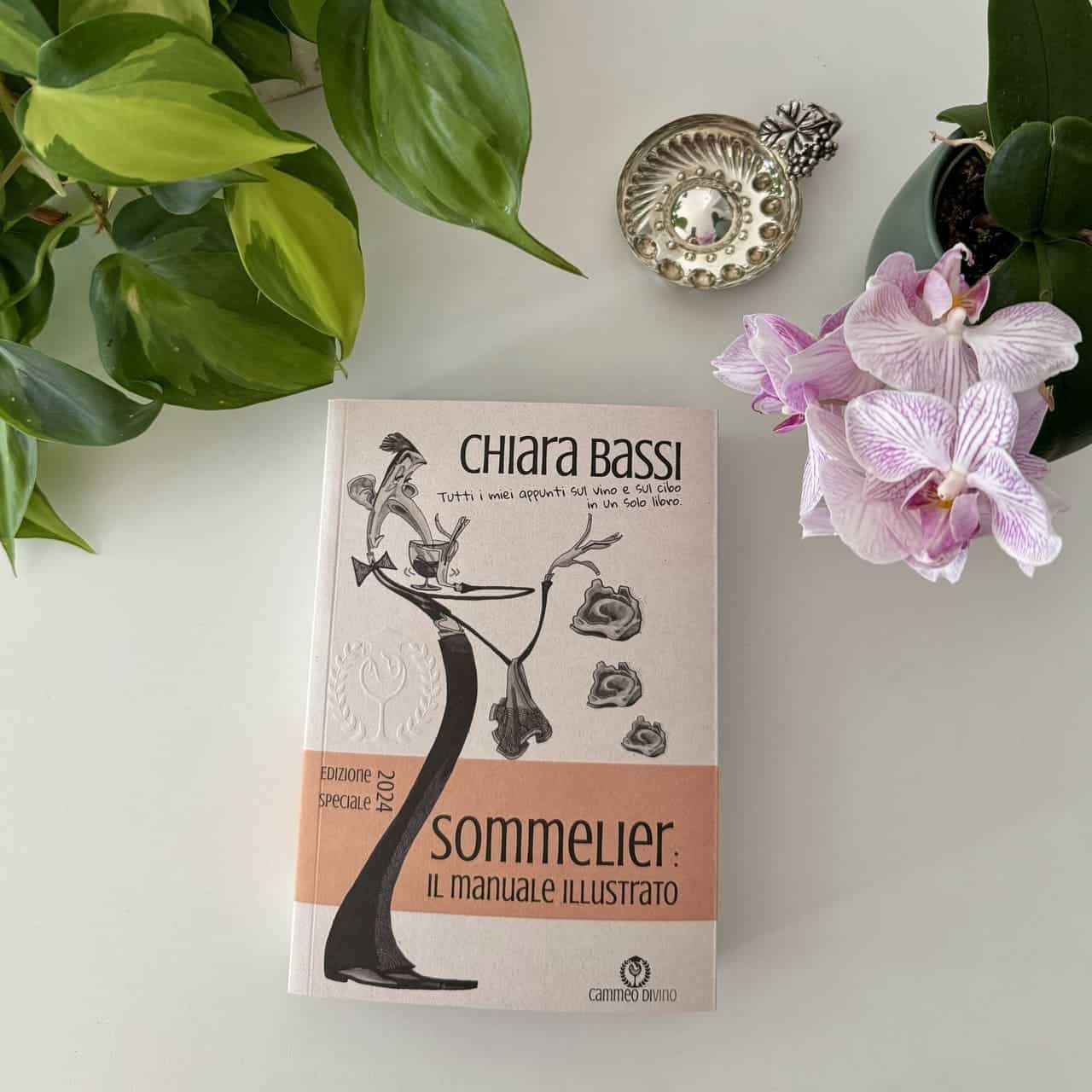In Calabria viticulture has very ancient origins, yet today it does not enjoy a great reputation nationally and is practically unknown abroad. Unfortunately, theorientation towards quantity rather than quality accentuated this low esteem, yet there are enlightened winegrowers who produce Calabrian wines excellent, as in the case of Lavorata Cellars. I would like to thank Daniele Lavorata for introducing them to me, in particular the Black Greek I absolutely fell in love with! But before I tell you about these interesting tastings, I want to share with you my notes on Calabrian wines so that I can also give you an oriented interpretation of what I drank.
Set between two seas, Calabria is a region where two cultures followed one another in parallel: the Italic and the Greek. This was also reflected in the wine: if a rudimentary Italic vineyard was emerging inland, on the coast the Greeks cultivated with greater technical awareness. We are around 300 B.C. and Calabria is known as 'Enotria', the land of the Oenotrians (named after the mythological character Oenotro, son of Lycaon, ruler of Arcadia, a historical region of Ancient Greece). Calabrian wines were already highly appreciated at that time, and in the wine markets of Sibari, Crotone and Locri, ships were loaded through 'enoducts' built with clay pipes, in which the wine flowed from the surrounding hills directly to the ships. The Tables of Heraclea, which contain two decrees on the cost of land dating from the end of the 4th century B.C., suggest that the wine trade was extremely important for the Calabrian economy, to the point of generating numerous investments. In fact, land under vines cost about six times the price of land used for other agricultural crops. Theocritus, in one of his writings, tells us of a very fine wine from Biblia, made from a grape variety originating in Thrace. Unfortunately, with the Roman conquest, wine-growing came to an abrupt halt because here too, vines were replaced with cereals, of which Rome was in great need. Calabrian wines made a comeback in the Middle Ages, when they were exported throughout northern Italy, Spain and France. Since ancient times, Calabrian wines have been robust wines that have met with great success until modern times, when the tastes of the average consumer have changed in favour of wines with less body, a more moderate alcohol content and aromas that are more fruity than spicy.
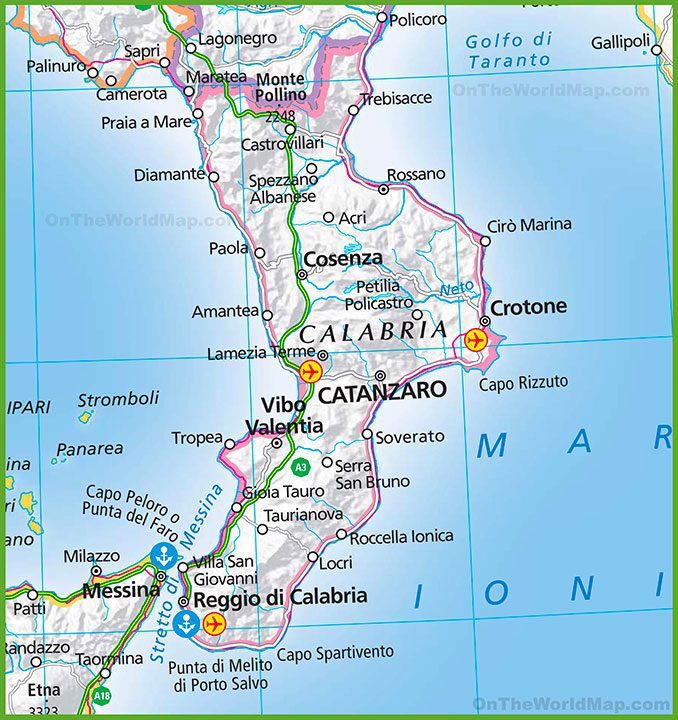
Calabria is a very long and narrow peninsula (on average no more than 60 km from coast to coast). Because of its elongated and narrow shape, the rivers are generally small, mostly torrential (and dry for most of the year) in pebbly beds, except for the Crati and the Neto, which stretch for over 80 km. The terrain is rugged: mountains rise steeply from the coast and are organised in massifs or isolated groups. The Sila plateau has an alpine appearance and is covered with forests with an average height of 1400 m above sea level. The soils are generally not very consistent because they were formed by the crumbling of crystalline rocks. The flat areas, once marshy and now reclaimed, have alluvial soils. In Aspromonte, the soils are poorly fertile and not very consistent. On the coasts, the climate is Mediterranean with very hot, dry summers and mild, fairly rainy winters. The temperature range, both daily and seasonal, is very modest. Inland, the climate is continental with hot summers and cold winters. On the Tyrrhenian side, it rains a lot.
I visited Calabria for the first time in summer 2015 and discovered a wonderful land populated by even more wonderful people. I ate and drank very well, and I, who have a weakness for chilli peppers, fell in love with 'nduja... especially with 'homemade pasta'.
Calabrian wines: key grape varieties and types of farming
Black berry wines are also more cultivated because obtaining white wines with a strong acidity is very difficult, especially with the particularly hot climate in some areas in summer.
Red grape varieties = Gaglioppo, Black Greek, aglianico, alicante, magliolo canino, nerello cappuccio, sangiovese.
White grape varieties = White Greek, guardavalle, pignoletto, malvasia bianca, malvasia di Candia, manzoni bianco.
Types of breeding = Low tree, spurred cordon horizontal and vertical, the counterweight and the marquee.
Calabrian wines: wine-growing areas
Province of Catanzaro = Catanzaro Lido
Province of Cosenza = Pollino, Crati Valley, Verbicaro
Province of Crotone = Cirò, Cirò Marina, Torre Melissa, Val di Neto
Province of Reggio Calabria = WhiteCasignana, Purple Coast
Calabrian wines: a delicious tasting by Cantine Lavorata
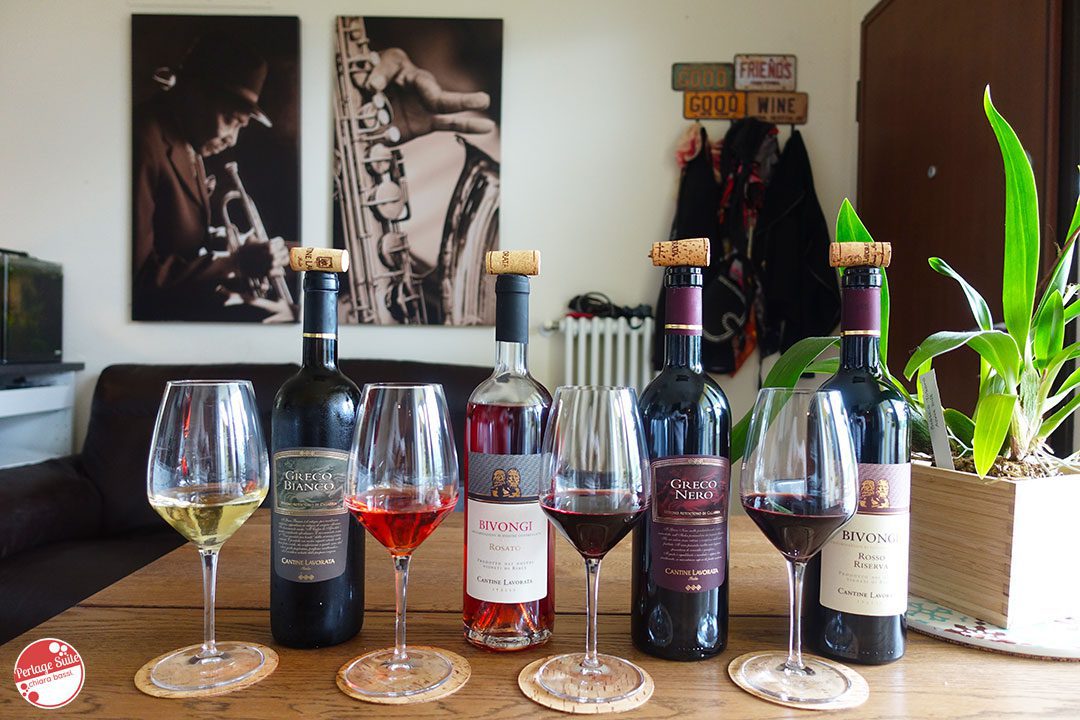
Lavorata Cellars have their roots in the Calabrian viticulture since 1800 when Luigi began to dedicate himself to vine growing. His son Domenico continued his father's passion, but the real beginning of the family's oenological history came with the second of his twelve sons, Vincenzo, who already produced Calabrian wine in 1958 and sold it throughout Italy. His son Ilario makes the family business grow by combining tradition and technological innovation. In a short time, these wines conquered the German and Belgian markets. Today, Ilario and Vincenzo's sons continue to carry the company's name high with a special focus on native grape varieties.
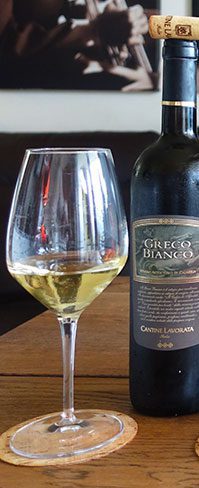
Calabrian wines - Cantine Lavorata: Greco Bianco IGT Calabria 2017
It has a brilliant straw yellow colour and on swirling the glass it is consistent, forming fairly close and regular arches that suggest a good alcohol content.
The nose is delicate, complex and elegant, with notes of caraway, lemon jam and oregano flowers that fade into a pleasant salty note.
In the mouth it is intense and consistent, fresh, soft, very savoury and with a long finish. My salivation clearly increased. Perfect with shellfish, fresh salmon and chicken in all its variations.
14 % vol
The vineyards are located in the Municipality of Riace, City of Bronzes, on a plateau.
refines in small Calabrian chestnut barrels
Harvest end of September
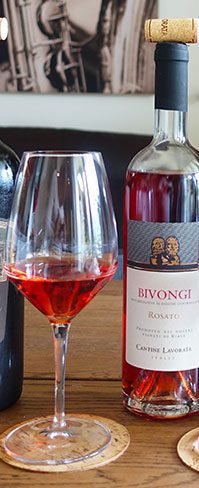
Calabrian wines - Cantine Lavorata: Bivongi DOC Rosato 2017
It is a bright, intense coral pink. By swirling the glass, it forms regular arches where the wine descends slowly and immediately reveals its good alcohol content.
As soon as I put it in my nose, I exclaimed, "mama that's good!" and I must say that I did not expect it to be like this at all! The nose is delicate, complex, fine and elegant, with hints of wild strawberries, red chilli peel, sour cherries in spirit, dried roses that fade into a mineral trail.
In the mouth it is consistent, soft, very fresh, quite savoury and long on the finish. I like it very much like this, on its own, as an aperitif, served not too fresh... alternatively, if you really want to pair it with something, it is certainly perfect with cured meats and grilled breaded sardines!
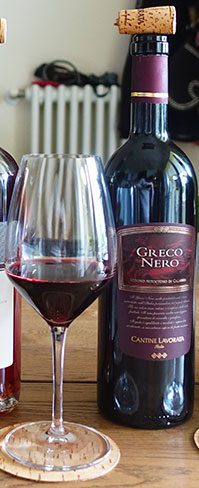
Calabrian wines - Cantine Lavorata: Greco Nero IGT Calabria Rosso 2015
It is an intense, semi-transparent ruby red. On swirling the glass, it is consistent and forms close and regular arches where the wine slowly descends, giving me an idea of its significant alcohol content.
The nose is intense, complex and elegant, particularly spicy. Notes of black pepper, cloves, leather, bitter cocoa, vanilla, blueberry jam and a trail of alkermes are discernible.
In the mouth, it is consistent, even more spicy, and cloves dominate in a pleasant vanilla weave. Intense, soft, fresh and with excellent drinkability and a fair length on the finish. Perfect with braised meats, barbecued meat or eel and spicy cold cuts, but I immediately imagined it with a homemade pasta all'nduja like the delicious one I made in Locri.
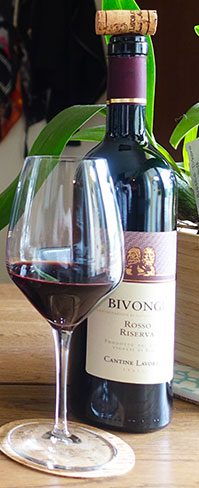
Calabrian wines - Cantine Lavorata: Bivongi DOC Rosso Riserva 2014
It is an intense, semi-transparent ruby red. By swirling the glass, it forms regular arches and the wine goes down quite slowly.
The nose is intense, complex, and elegant with notes of black berry fruits intertwined with vanilla and then fading into a smoky hint.
In the mouth it is consistent, soft, fresh, overall elegant, rightly tannic, quite savoury and long on the finish. It lends itself to be paired with BBQ meat also with long and tasty marinades, braised meats, fresh pasta with very tasty sauces and mature cheeses.
Thanks to Danilo Lavorata for his wonderful Calabrian wines and for creating the opportunity to talk about his wonderful land.
Cheers 🥂
Chiara

